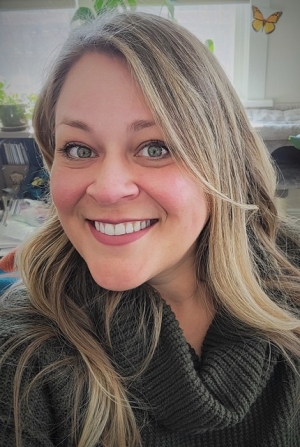M.S., Rare Insect Conservation Coordinator
Utah State University
Bio:
Amanda Barth is the Rare Insect Conservation Coordinator for Utah State University, and leads Utah’s Rare Insect Conservation Program (RICP) that works closely with the Division of Wildlife Resources. She has a background in science education and pollinator conservation, and is passionate about increasing awareness of the importance of insects to a healthy environment. Through the RICP, she coordinates with agency, academic, and community partners to gain information about at-risk insects in Utah, and helps guide conservation and habitat restoration actions for terrestrial and aquatic insects across the state. Amanda serves on the Board of Trustees for the Salt Lake City Mosquito Abatement District (SLCMAD), with whom she has promoted healthy habitat initiatives and mosquito management practices that limit non-target ecological impacts. She also serves as chair for the Western Monarch and Native Insect Pollinator Working Group with the Western Association of Fish & Wildlife Agencies (WAFWA), which coordinates pollinator conservation strategy and regional actions with Western states and federal partners.
Panel Discussion: On the Fly: The Unsung Insects Feeding Great Salt Lake Birds
Abstract: Brine flies may be the most important insect on the saline lakes corridor in the Western US, but they have flown under the radar, so to speak, and have not been a primary focus in most salt lake research. This panel will speak to the significance of the Ephydra species and their friends in the Great Salt Lake food chains. Brine flies have been under stress as salinity climbs in shrinking lakes, and the birds that eat them could also find themselves in peril. The panelists will broaden our view of the diversity of flies and their unique physiology. Also, how should we be monitoring them and how does this report on the health of the ecosystem? Join us as we investigate what we can do to protect brine flies and the birds they feed.

